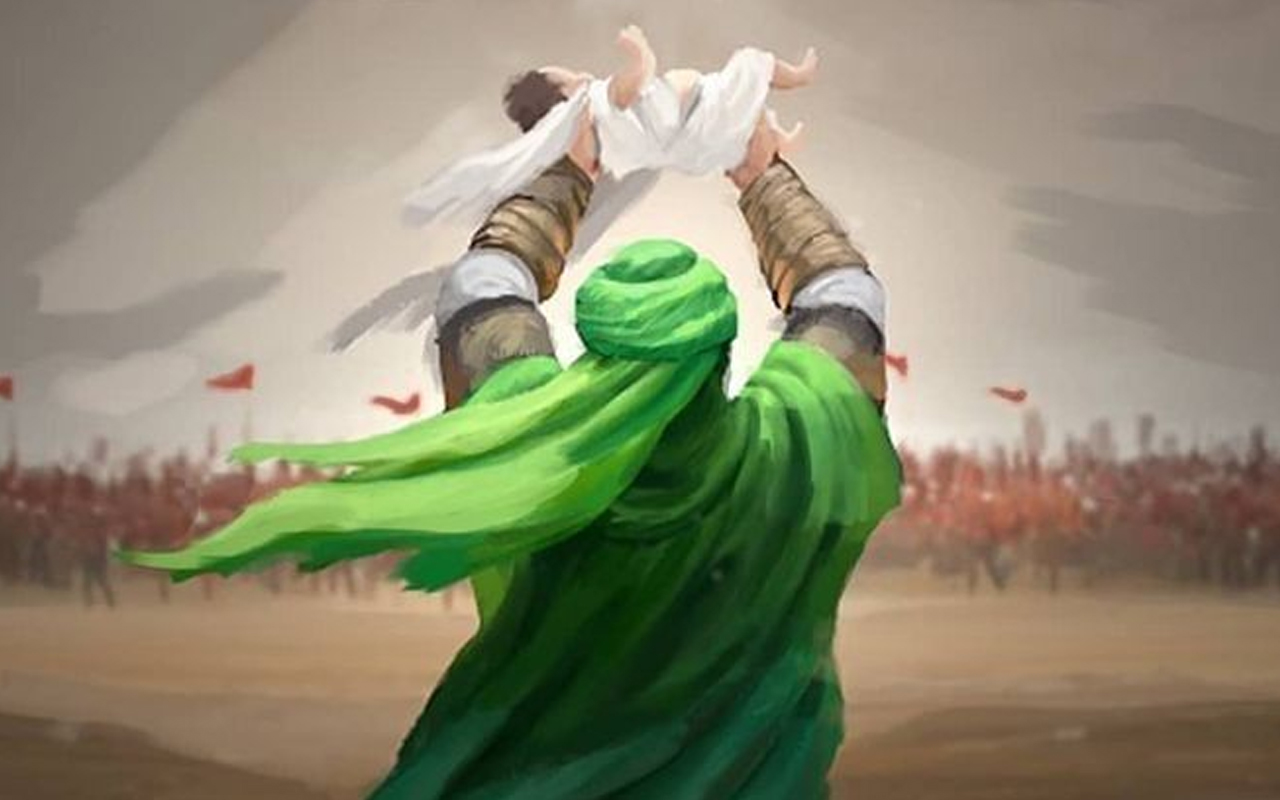Just 48 years after the death of the Prophet Muhammad (saws), his grandson Imam Husain (as) was martyred in the Battle of Karbala.
After the shahadat of Imam Ali(as), it was Imam Hasan (as) who was his rightful successor but due to ongoing circumstances and disivions in the Muslim Ummah he signed a peace treaty with Muawiya. One of the points the treaty stipulated was that, Muawiya would not appoint a successor after him.
In 670, Imam Hasan (as) was assassinated, leaving his brother Imam Husain (as) to take on his duties. However, the treaty was breached when Muawiya named his son Yazid as his successor, starting the Umayyad Dynasty.
Imam Husain (as) always maintained that he will never pay allegiance to Yazid. He sought reform for the Ummah by standing up against oppression and corruption.
After recieveing thousands of letters from the people of Kufa he left Medina. However, the support from Kufa dwindled due to threats from Yazid’s army.
As Imam Husain’s caravan approached Kufa, it was intercepted by Yazid’s army led by Hurr and later joined by Omar ibn Saed. The army surrounded Imam Husain’s camp in Karbala, cutting off access to water, leading to days of suffering from thirst.
Despite facing overwhelming odds, Imam Husain (as) refused to back down. His companions pledged to stand with him in the face of (apparent) certain defeat.
The Battle of Karbala, fought mainly on the day of Ashura, commenced with Imam Husain’s small group facing an army numbering around 30,000. One by one, his companions were martyred, leaving Imam Husain (as) with only a few family members.
Imam Husain (as) fought valiantly, but eventually, he was brutally attacked and beheaded on the battlefield. His family was taken captive, and the women and children were subjected to further atrocities.
The story of Karbala shook the Muslim Ummah, inspiring uprisings across the Muslim empire. The day of Ashura is now mourned globally by millions of Muslims, both Sunni and Shia, to honor the heroic stand of the Prophet’s grandson, Imam Husain (as).
